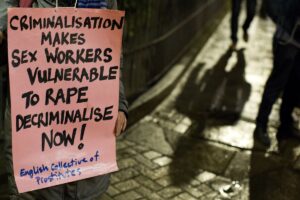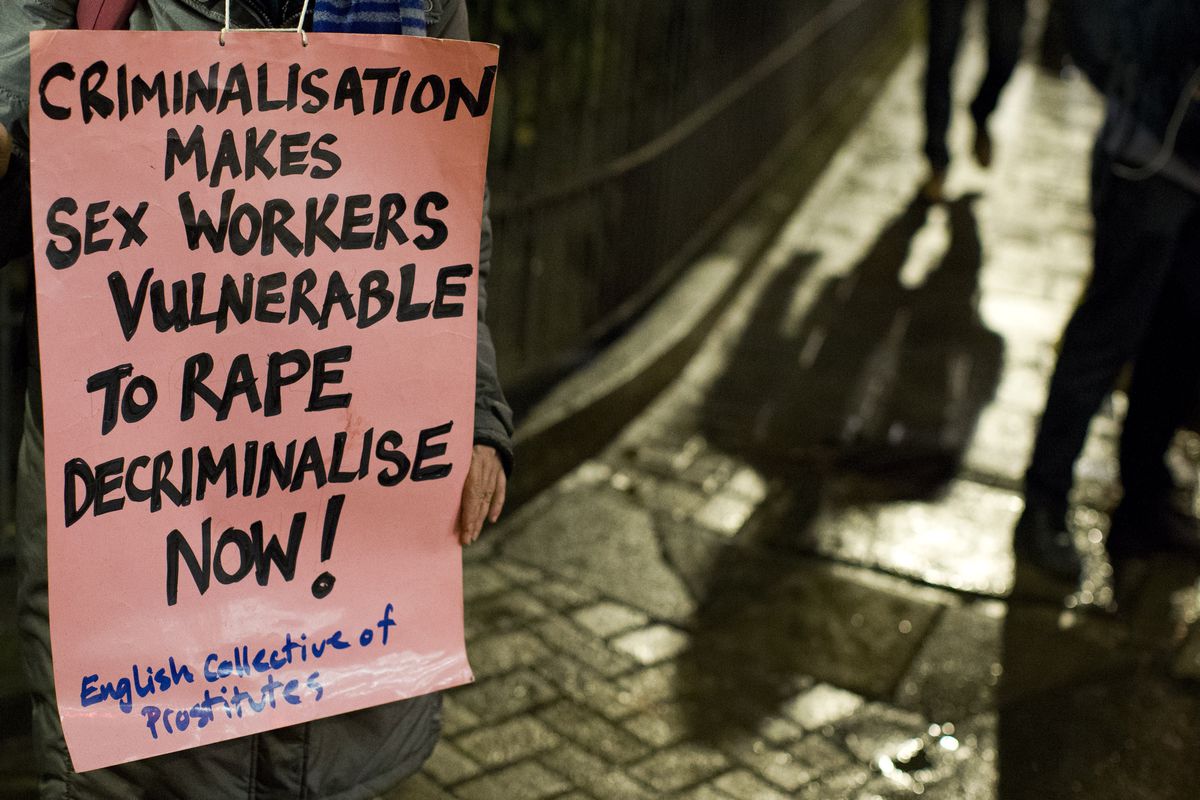
In the United States, there exists a plethora of black-market business opportunities to be utilized by entrepreneurial criminals, be they American citizens or not. This includes such trades as the sale of illegal drugs, weapons and stolen personal information. As the demand for many of these goods and services remains generally inelastic, many of the policies and laws that attempt to restrict access to these markets (guns and drugs in particular) result in an unregulated and dangerous underground that helps fund violent criminal organizations including American gangsters and foreign cartels.
Although most of those who agree with the current approach to these issues do so from a place of well-intentioned concern, the opposition would argue that restricting such liberties not only impedes on both personal and economic freedom but also causes more problems than would be prevalent in a legal and regulated market.
The topic of prostitution is one of many at the center of this debate. People who condone the criminalization of the profession cite the history of abuse and forced labor within the sex-work industry, as well as the potential spread of disease and “moral complications” that influence many people’s opinions on the matter of sex in general.
Arguments for the legalization of sexual services point out that, as with any industry, the involvement of government regulation and access to the legal system as means to solve professional disputes—be they in regard to health, civil liberties or physical assault—results in a much higher safety profile for all parties involved. The benefits of regulatory systems in the U.S. are evidenced by such agencies as the Food and Drug Administration, the Consumer Product Safety Commission, the National Labor Relations Board and other similarly titled government agencies.
Currently, there exists a wide array of countries that have decriminalized sex-work, some that have done so more successfully than others. Perhaps the most famous example of this policy is to be found in the Netherlands’ Red Light District, where brothels and those workers within them are required to complete safety and hygiene checks. Under no threat of criminal charges, employees—who willingly consent to exchange their services for monetary compensation—are able and encouraged to seek civil action, contact the police, deny customers or leave the occupation as they please.
Any personal moral objection to the monetization of one’s own body, pre-marital sex or general promiscuity is irrelevant to the laws that pertain to prostitution. As exotic dancing, pornography and general sexual liberty all remain legal across the country, there is little ground to argue that such beliefs should in any way be reflected by the governmental policies.
Legal prostitution empowers sex-workers in a way that entirely contrasts the lifestyle and viewpoint offered by their “criminal” counterparts. According to Harvard Civil Liberties Law Review, legalizing prostitution also results in several societal benefits including tax-revenue, reallocation of police resources, reduction in overall STD cases and an increase in overall safety for women due to the deterioration of black-market sex-work opportunities.







